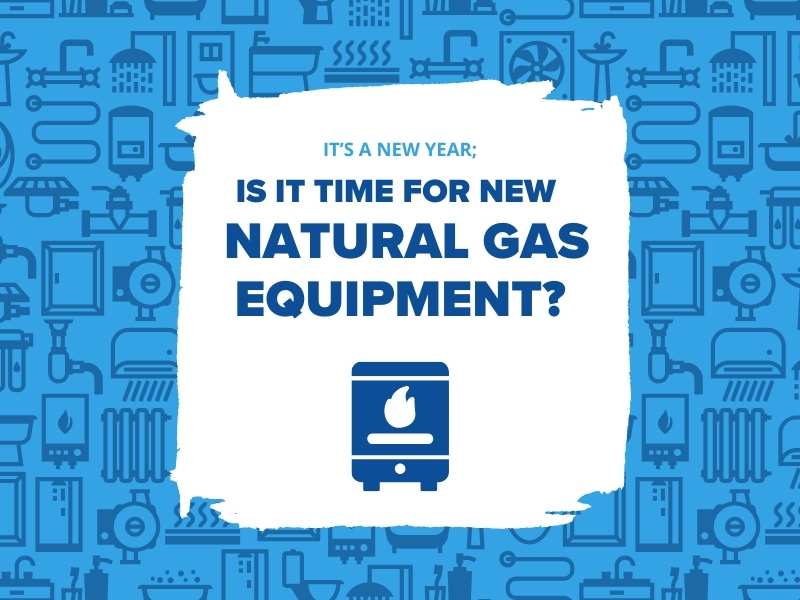
Jan 12, 2024
Is It Time to Replace Your Natural Gas Furnace or Water Heater? A Guide to Assessing the Lifespan of Your Home Appliances
As the seasons change and the temperatures drop, ensuring that your natural gas furnace and water heater are in peak condition becomes essential for a comfortable and efficient home. As equipment ages, appliances may show signs of wear and tear, and it's crucial to know when it's time to consider a replacement. In this helpful guide, we'll walk you through the indicators that your natural gas furnace or water heater might be reaching the end of its life, and why working with a licensed HVAC professional is crucial for a seamless transition. Plus, discover how we can help you save money through our rebate programs and offers.
- Age Matters: The first factor to consider when evaluating the lifespan of your natural gas furnace or water heater is its age. The lifespan of a piece of equipment will depend on the type of equipment. Tank water heaters have a lifespan of 10 years, while standard efficiency furnaces last about 15 years. Newer, higher-efficiency furnaces and tankless water heaters typically last 15-20 years. If your system is nearing or has surpassed this timeframe, it's time to start paying extra attention to its performance.
- Rising Energy Bills: A sudden spike in your energy bills could be a red flag that your natural gas furnace or water heater is not operating efficiently. Aging appliances may require more energy to produce the same level of heat or hot water, leading to increased utility costs. If you notice a significant and unexplained rise in your energy bills, it's worth investigating the condition of your heating system. Sudden changes could also mean a potential leak – safety is important! Always call us right away if you have concerns about a gas leak at your home.
- Strange Noises: Unusual sounds coming from your furnace or water heater, such as banging, popping, or whining, could indicate mechanical issues. These noises may suggest that certain components are wearing out or malfunctioning. Regular maintenance can address some of these issues, but if the sounds persist, it might be a sign that a replacement is on the horizon.
- Frequent Repairs: Are you finding yourself calling for repairs more frequently? While routine maintenance is normal, an increasing need for repairs may indicate that your natural gas appliance is on its last legs. Consider the cumulative cost of repairs and weigh it against the investment in a new, more efficient system.
- Uneven Heating or Inconsistent Hot Water: If you're experiencing uneven heating throughout your home or inconsistent hot water supply, your natural gas furnace or water heater may be struggling to meet your household's demands. This could be a result of aging components or a decline in the overall efficiency of the system.
- Work with a Licensed HVAC or Plumbing Professional: When it comes to replacing your natural gas furnace or water heater, it's crucial to enlist the expertise of a licensed HVAC or plumbing professional. These professionals have the knowledge and experience to assess your specific needs, recommend suitable replacements, and ensure a proper installation. Attempting a DIY installation or relying on an unqualified technician can lead to safety hazards and reduced efficiency.
- Explore Rebates and Savings Opportunities: We understand the importance of making energy-efficient choices. That's why we offer a range of rebates and savings opportunities to help offset the cost of upgrading your natural gas appliances. Visit our website to explore available incentives and discover how you can save money while investing in a more efficient and reliable heating system.
Explore our rebates pages today: https://summitutilities.com/residential/residential-rebates-efficiency-programs
Terms of Use | Privacy & Cookie Policy | Careers | Newsroom | Contact Us
© 2026 Summit Utilities Inc. All rights reserved. | Sitemap

